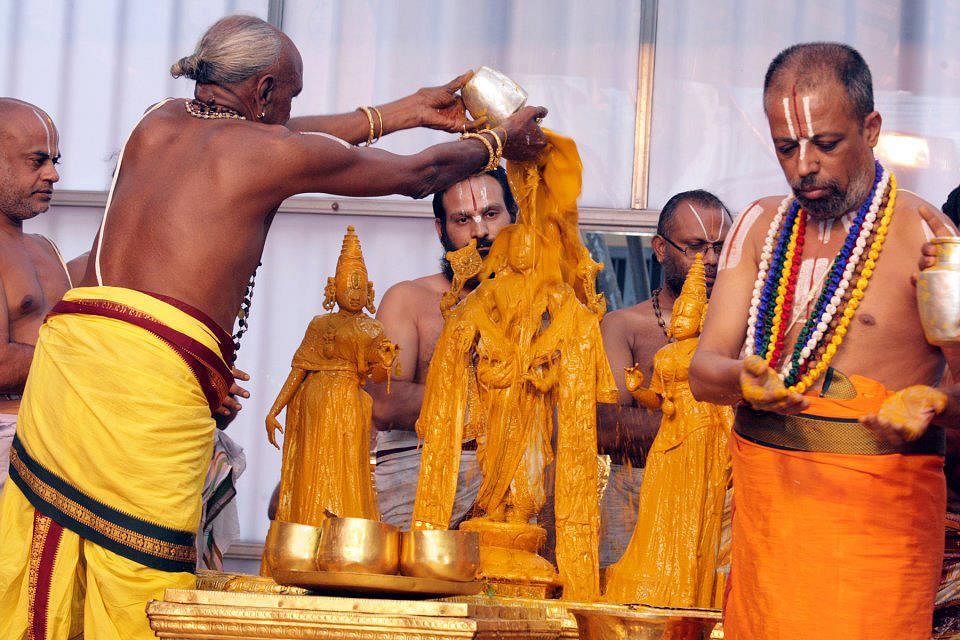Dalit rights activists say that the programme serves no purpose if the trained priests can’t perform rituals in the temples associated with one of the richest temple trusts in the world.
New Delhi: In December 2017, one of the world’s richest temples, the Tirumala Tirupati Devasthanams (TTD), made headlines after it said that for the first time in its history it would be training individuals from Scheduled Castes and Tribes to be priests.
However, the trust now says that none of the individuals in the programme will serve in any of the temples it administers, a move that Dalit rights advocates say renders it meaningless.
“TTD temples are governed by the science of rituals called agama sastras and each temple has got its own agama and its own hereditary priest system which we still follow,” Dr. A.V. Ramana Dikshitulu, the head priest at TTD, told ThePrint.
Dikshitulu was part of the committee that prepared the syllabus to train the priests.
“There were no Dalit priests in TTD temples. They are already working in their temples; we just polished them and gave them the techniques,” he said.
Asked about the training systems in place, Dikshitulu said, “TTD is training the local people to worship in their own local temples in fishing and Dalit villages. We are guiding them to maintain hygiene and sanctity in their temples by teaching how a priest should behave inside a temple.”
The genesis of the programme
Ravi T, the public relations officer of TTD, said the programme was the result of leaders from villages approaching the trust saying there were people interested in learning the Vedas and mantras to conduct pujas in their temples.
The TTD agreed to provide the training and a programme was added at the Sri Venkateswara Employees’ Training Academy in Tirupathi. The spokesperson said that the trust’s role was always just to provide training.
“After training they go back to their villages and they will be chosen by their community to be identified as pujaris. TTD’s part is only to provide training, not employment or anything beyond training,” he said.
Officials from TTD said those who come from the programme are placed in temples built with financial assistance from the trust. Officials from TTD say they have trained 330 people so far and have constructed 500 temples for members of lower castes and tribals.
‘Meaningless’
“If it was intended to be a positive step, these Dalit people should have been made priests in existing temples” said Dr. V.S. Nirmal, Dalit rights activist and National Secretary of Bharatiya Khet Mazdoor Union.
“You are propagating the old tradition when you decide to encourage Dalits to become priests. A sadhu does not contribute to the economy and when a Dalit is made a priest, he also stops contributing to the society. The segregation of temples for different communities will continue to prolong the caste systems,” he said.
Chandra Ban Prasad, a Dalit ideologue said that this move to appoint Dalit priests is ‘meaningless.’
“Generally the priests in these temples are from OBC background and not Dalits. Dalits are not allowed to enter temples in many parts of the country even now,” he said.
“What will a Dalit go and do in a temple when all the Hindu scriptures are against him. Will he go and teach that?” he said.
